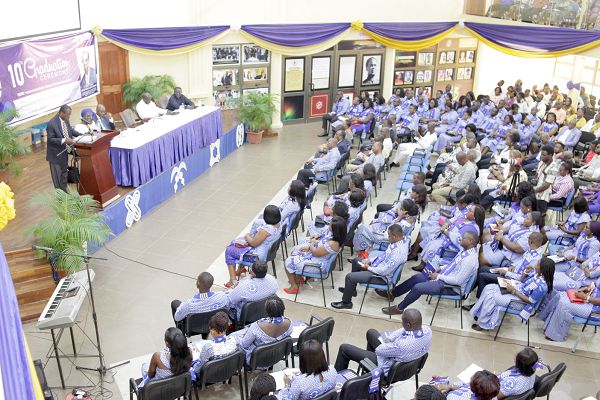
Avoid redundancy exercise if possible-HR practitioners urged
A Professional in Human Resource (HR) management, Mr Kwadwo Asare-Bediako, has called on HR practitioners in the country to avoid redundancy exercises if possible and rather resort to other available options to address employees’ issues.
In that regard, he however, underscored the need for HR practitioners to adopt other measures such as pay cuts, reduction of benefits and staff reduction through natural attrition to avoid total redundancy exercises.
At the 10th graduation ceremony of the Institute of Human Resources Management Practitioners, Ghana (IHRMP) on December 6, in Accra, Mr Asare-Bediako who made the comment admonished them to be interested in saving jobs rather than redundancy exercises.
“Managing redundancy exercises is perhaps the most sensitive activity in human resource management. This is because unlike retirement, redundancy is unexpected and unplanned; and causes pain, anguish and hopelessness.
“But, if a redundancy programme must be carried out, it must be done through planned employee engagement and with the highest standards of objectivity, fairness, transparency and professionalism,” he added.
He was speaking on the theme: “Managing Redundancy through Employee Engagement.”
The astute HR practitioner also outlined six reasons why any organisation seeking to embark on a redundancy exercise should properly engage the employees in order to manage the process.
“The six consist of image of the company; to sustain the morale of those who would be retained, market effect; attraction of good employees, avoiding protests and media bashing and maintaining professionalism of the HR managers and the company.”
Good ambassadors
The President of IHRMP, Dr Edward Kwapong, in a message read on his behalf by his Vice President, Mr Leonard Quarcoopome, charged the new graduates to be good ambassadors of the institute as they delivered their mandate and discharged their duties.
He advised them to go on to complete the level four (L4) and be fully certified.
He also called on them to participate in the institute’s activities, make it a point to join a chapter and contribute their quota to the noble profession.
Significance of the ceremony
In his welcome address, the Executive Director of the institute, Mr Ebenezer Agbettor, said the ceremony was significant because it showed that the institute since the inception of the professional certification programme (PCP) in 2002 was growing at a great pace.
One hundred and sixty four associates and 32 certified members graduated as compared with last year’s figures of 136 associates and nine certified, representing a remarkable increase of 35 per cent in the number of students graduating.
